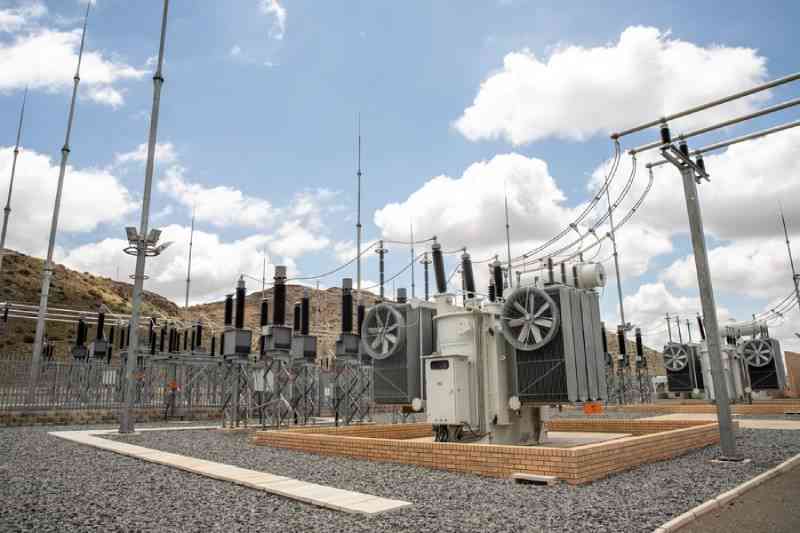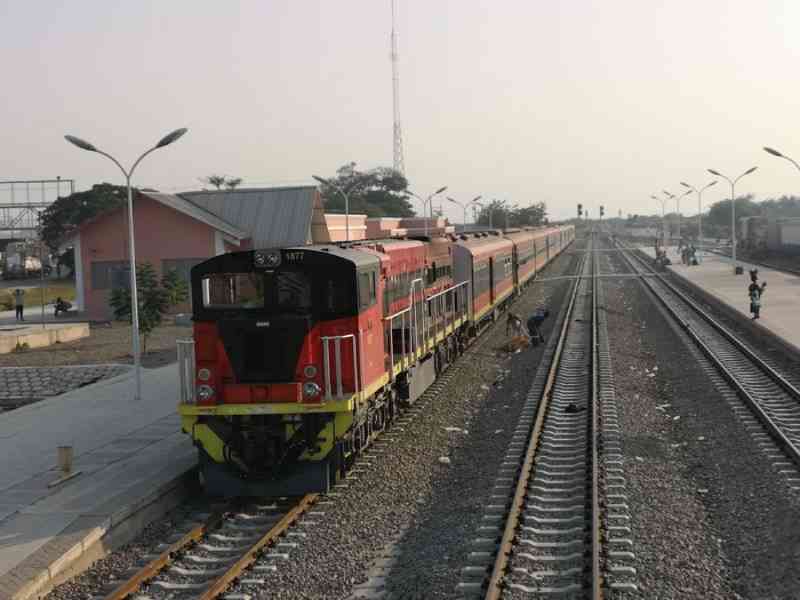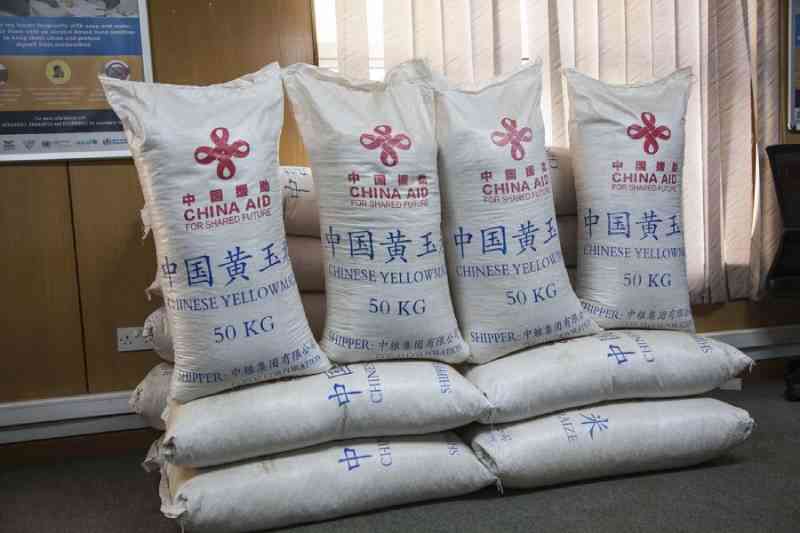
Audio By Vocalize

As the vulnerable developing countries in Africa face the multiple threats of food insecurity, soaring inflation and climate change with the spectre of global stagflation, calls are growing louder for collective actions and close cooperation to make global development more inclusive and resilient for the benefit of all.
Driven by robust Belt and Road cooperation and the China-Africa cooperation mechanism, the ever-growing economic and trade as well as cultural ties between China and Africa shed light on the spirit of inclusive development, benefiting both Africans and Chinese in a tangible way.
Better connectivity in Africa
In the East African nation of Ethiopia, residents in the Oromia region are looking forward to a better future brought about by a China-built road.
The 56.5-km-long asphalt road, recently completed by the China Communications Construction Company, is expected to facilitate transporting cereal products such as wheat, barley, and fruits produced in Oromia to the market in Addis Ababa, Ethiopia's capital, according to Ethiopian state-affiliated Fana Broadcasting Corporate.

The local government also hopes the road would unlock the tourism potential of the area as better road conditions will attract more tourists.
In the bustling Viana City of Luanda Province in Angola in southern Africa, the 1,344-km-long Benguela Railway, built by the China Railway 20 Bureau Group Corporation (CR20), functioned as a "lifeline" during the COVID-19 pandemic by carrying much-needed supplies to the country's inland areas.
Multiple certificates of honour, conferred by the Angolan government to recognize the company's work and contribution, were displayed on a wall at a showroom in the headquarters of the CR20 Angola International Company.
Zhu Qihui, chairman of the board of the group's subsidiary in Angola, said that through the Belt and Road cooperation, Chinese enterprises have brought technology, experience, and standards to Africa while local employees acquired jobs, skill training and higher income.
By the end of 2021, 52 African countries, together with the African Union Commission, have signed cooperation documents on the Belt and Road Initiative (BRI) with China.
Ronie Bertrand Nguenkwe, an economist and researcher at the University of Yaounde II in Cameroon, said the contributions made by the BRI have proven that the initiative is based on cooperation, mutual benefits and common interests. 
Sharing opportunities
At the fifth China International Import Expo (CIIE) held in Shanghai, a great number of African agricultural produce, including Ethiopian coffee, Rwandan chili pepper, Kenyan avocado and Zambian honey, were showcased in the hopes of tapping into the vast Chinese market.
In its third-year participation in the CIIE, Rwanda Farmers Coffee has brought a new type of its product developed in line with the demand of Chinese consumers.
Striving for a share of the Chinese market with its competitors, the company was able to showcase "what it has to offer" to Chinese customers through the CIIE platform, said Aaron Rutayisire, sales and marketing manager of the company.
Stay informed. Subscribe to our newsletter
China has become the second largest destination of African agricultural exports, with an average annual growth of 11.4 per cent in Africa's exports to China, according to data from the Chinese government.
Also, China has been the largest trading partner of Africa for 13 successive years, while the overall bilateral trade volume has reached 254 billion U.S. dollars in 2021 with a year-on-year growth of 35 per cent, statistics from China's Ministry of Commerce showed.
Sheriff Ghali, a professor of political science at the University of Abuja in Nigeria, said the CIIE shows China's determination and willingness to promote globalization, and it enables enterprises in developing countries to interact with Chinese and international companies, facilitating their integration into the global trade system.
Through the import expo, "nations can showcase what they have, as well as see what they do not have and learn. This will economically cement friendship and relations among states, and bring a more cooperative spirit among them," he said. 
Fighting poverty
Over the past decade, China has succeeded in eradicating absolute poverty in the country. A model and a pioneer in alleviating poverty, the country also actively advocates for and participates in the global campaign for poverty reduction.
The World Bank projected that the Belt and Road cooperation will lift 7.6 million people out of extreme poverty and 32 million people out of moderate poverty around the world by 2030.
To share experiences and promote international cooperation against poverty, China has put forth the Global Development Initiative and endeavoured to establish international networks and alliances.
Through a China-aided project last month, villagers in the rural areas of Zambia's Lusaka Province were equipped with the knowledge and small-scale technologies to improve their productivity in the chicken-rearing business.
Simushi Liswaniso, the project coordinator, said the China-funded program, namely the Demonstration Village for China-Africa Agricultural Development and Poverty Reduction, which runs from this year to 2025, will enhance the friendship between the two countries.
Early this month, the Power Construction Corporation of China (PowerChina) donated over 500 sets of solar lighting systems to the Lauteye village in the Bunkure local government area of Kano state, northern Nigeria.
Expressing his gratitude for the kind gift, Shuaib Ibrahim, a 48-year-old villager, said his home did not have "any form of power" before the donation.
The solar-powered systems provide more than 300 families in the village with a cleaner and more sustainable source of energy, ending its history of using charcoal fires or kerosene lamps for lighting.
Costantinos Bt. Costantinos, a professor of public policy at Addis Ababa University in Ethiopia, said China's development has inspired the world; in particular, it galvanized the developing world toward socioeconomic progress and inclusive development.
Ghali said that China's successful fight against poverty has created a pathway to be followed by developing nations seeking to lift its large population out of the shackles of poverty within a stipulated time, adding that China's success in the anti-poverty fight has shown that poverty is not unsolvable.